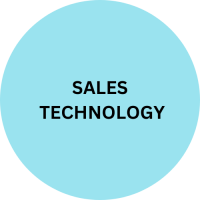Healthcare 2024: Technology Trends Shaping the Future of Medicine

Strong 8k brings an ultra-HD IPTV experience to your living room and your pocket.
1. The Rise of AI and Machine Learning
Artificial intelligence (AI) is rapidly integrating into healthcare, offering a plethora of benefits. Machine learning algorithms can analyze vast amounts of medical data to identify patterns and predict disease outbreaks. This can help doctors diagnose illnesses more accurately and recommend personalized treatment plans. AI can also automate administrative tasks, freeing up valuable time for clinicians to focus on patient care.
2. The Internet of Medical Things (IoMT) Revolution
The IoMT refers to a network of interconnected medical devices that collect and transmit patient data in real time. Wearable health trackers, smartwatches, and ingestible sensors are just a few examples of IoMT devices. This technology allows for remote patient monitoring, enabling healthcare providers to track vital signs and intervene promptly in case of emergencies.
3. Virtual Hospitals: Redefining Patient Care
The concept of virtual hospitals is gaining traction, offering patients convenient access to specialists and consultations from the comfort of their homes. This model leverages telemedicine technologies like video conferencing and remote monitoring systems to deliver comprehensive care. Virtual hospitals are particularly beneficial for individuals in remote locations or those with limited mobility.
4. Augmented Reality (AR) and Virtual Reality (VR) Reshaping Medical Training and Treatment
AR and VR are finding innovative applications in healthcare. VR simulations can create immersive training environments for surgeons, allowing them to practice complex procedures before operating on real patients. AR can overlay vital information onto a patient’s body during surgery, providing surgeons with real-time data to enhance precision.
5. The Promise of 3D Printing and Bioprinting
3D printing technology is making waves in healthcare, enabling the creation of customized prosthetics, implants, and even anatomical models for surgical planning. Bioprinting, an emerging technology, holds the potential to create functional human tissues and organs for transplantation, potentially revolutionizing regenerative medicine.
The Future of Healthcare: A Brighter, More Connected Horizon
These technological advancements paint a promising picture for the future of healthcare. By harnessing the power of AI, IoMT, and other innovations, we can expect more personalized care, improved disease prevention, and ultimately, better health outcomes for all. As these trends continue to evolve in 2024 and beyond, the healthcare landscape will undoubtedly transform, offering a more connected, efficient, and patient-centered experience.
With the growing needs of the healthcare industry, it is no wonder that doctors burn out. Health institutions struggle to solve challenges and deliver high-quality services – from analyzing health issues to safeguarding patient privacy. With the introduction of new healthcare technologies, overcoming some of these difficulties is possible.
The U.S. healthcare market is growing, with national health expenditures expected to exceed $6.2 trillion by 2028. Although there are still significant obstacles to overcome, there is hope that technology will be able to help. Healthcare technology can change how the industry operates for patients and healthcare professionals.
Let us find out how:
The Telemedicine Revolution
Telemedicine has been around for quite some time. Doctors used telemedicine for far-away consultations. They have done this since the time of bulky computers.
People started becoming familiar with technology, and phones completely overtook our lives. People became more comfortable with tech, and the rise of video and audio consultation was near. It was the time when Googling the symptoms was becoming a thing.
Then the pandemic happened. It changed the way we lived – there were a lot of changes in healthcare – people accepted online consultations, not wanting to come in contact with others fearing they might catch something new.
The new normal pushed the government agencies to lax the rules. After the pandemic, the medical field relaxed several rules, leading to the acceptance and preference of telemedicine.
AI and Machine Learning in Healthcare
Imagine how hard it would be for a hospital to sort and analyze the data of every patient – they have so many new patients on a daily basis and, many have a history of tests and diagnoses. The hospital cannot make a mistake with these crucial data and at the same, it also has to sift through it for every patient to draw a pattern or make any predictions. It would take forever. That is where AI and machine learning come in – they can analyze this vast data and use it to improve healthcare in some mind-blowing ways:
Artificial Intelligence (AI): AI is an umbrella term for intelligent machines that can learn and act like humans – almost like humans. In healthcare, professionals are using AI for healthcare things like analyzing medical images (X-rays, MRIs). It helps to detect diseases or help doctors develop treatment plans.
Machine Learning (ML): ML is a specific type of AI where computers learn from data without explicit programming. In healthcare, machine learning algorithms can analyze patient data. They use it to find people at risk for diseases, predict how they might respond to drugs, or even help with drug discovery.
Here are some other examples showing how AI and machine learning are making healthcare better:
Spotting diseases early: AI can analyze mammograms, skin images, and other scans to find abnormalities doctors might miss, leading to earlier diagnoses and better outcomes.
Personalized medicine: Every person can have different reactions to the same drugs. Machine learning can help personalize treatments for individual patients based on their unique medical history, genes, and lifestyle.
Drug development: AI can analyze data to find new drugs and treatments faster.
Virtual assistants: AI-powered chatbots can answer patients’ questions, schedule appointments, and provide primary medical advice. It is better than Googling symptoms.
Blockchain for Health Data Management
Instead of relying on a single doctor’s office to hold all your information, and different offices to have different variations, blockchain lets you have a copy that can be accessed by anyone you trust with your permission. Your address book is backed up and kept safe by a complex code, making it tamper-proof. And that is how blockchain technology works for managing health data.
Here is a breakdown to understand things better:
Blockchain: It is a digital ledger recording transactions, in this case, your health ledger, across a network of computers.
Health Data: All your medical history, allergies, medications, etc. that you have records of.
Security: The code that protects the data from violations and unauthorized changes.
This way –
You get to control who sees your information.
Your data is secure, and no one can alter it without your permission.
Everyone sees the same up-to-date information, leading to no extra fuss about whose version to trust.
So, instead of each doctor’s office having its copy of your records, making it hard to share and update, all authorized users see the same secure, shared record.
Wearable Health Devices
It might surprise you that even wearable tech devices have been used since the late 1970s – people used calculator watches back then. It was the stepping stone for wearable tech.
In the late 1800s, there were hearing aids, a proper introduction to wearable healthcare. But, it was not until 2010 when Fitbit launched the popular wearable bands, and then came the influx of smartwatches, which now are turning into small phones!
The latest wearable health devices can track you:
Fitness – includes steps taken, calories burned, and distance covered – like a souped-up pedometer.
Sleep – includes how long you sleep and how well you rest.
Heart Rate – helps you watch your heart health and activity levels.
Other biometrics – include some advanced wearables that can even track blood pressure, oxygen levels, or even glucose levels for diabetics.
Virtual Reality in Healthcare
Virtual reality works for healthcare in diverse ways. Most hospitals and medical universities implemented VR applications to train professionals, perform surgery, or provide medical education.
It involves problem-oriented learning, internal body organ explanation by virtual visualization, and teaches the necessary communication skills to students.
Another use case of virtual reality in healthcare is distracting patients’ attention. Virtual reality is known to relieve chronic pain in people who are recovering from any disease or when the use of pain medicine or anesthesia does not have the desired effect.
VR in the medical field also assists in physical therapy and rehabilitation for patients who find it difficult to exercise because of pain. VR motivates them to complete their physical activity by distracting their attention away from pain with the help of visual aids, sensations, and sounds.
Personalized Medicine and Genomics
Personalized medicine, called precision medicine, is how your healthcare becomes perfect for your unique needs. It considers your genes, environment, and lifestyle to predict your risk for certain diseases and recommends the best prevention or treatment options. It is like a personalized medicine that gives you a custom fit, instead of a one-size-fits-all approach. And, it is helpful – we all have had experiences where over-the-counter medicine has caused new allergies or side effects, and precision medicine helps you avoid that.
Genomics plays a promising role in this because it studies your genes and how they affect your health. When analyzing your genes, doctors can:
Predict disease risk: Your doctor can identify whether you will develop certain diseases based on your genes.
Improve diagnoses: They can understand what is causing your health issues.
Choose better treatments: Genomics gives your doctor the power to tailor medications and therapies to your genes, making them more effective and reducing side effects.
Develop preventive strategies: Your healthcare professional can create custom plans to prevent diseases you might be sensitive to.
Your genes act like a blueprint for your body. They act like instructions for the doctor when anything goes wrong. Personalized medicine uses these instructions to create your personal healthcare plan.
Internet of Medical Things (IoMT)
Although the IoMT is nothing new, this sector will grow in the coming years. The industry is concerned with digital health trends. It offers excellent uses to healthcare specialists, with money saved in return.
Many companies are providing IoMT solutions that can help you design and adjust your IoMT system with the help of urbane custom software.
Wearables and Mobile Apps in Medical Practice
As discussed earlier in the blog, remote health monitoring and wellness apps are growing and will keep booming. If you visit your Playstore or the Appstore catalogs, you’ll find many professional healthcare and wellness mobile apps. Again this also highlights how much the telemedicine industry is in demand.
Some of those mobile apps can synchronize with wearables as well, such as pulsometers or fitness trackers, to use data collected through the sensors placed on your body to report or analyze your health conditions, such as pulse, body temperature, blood pressure, and other metrics. While many people appreciate knowing every detail that they can capture about their day-to-day activities, some also prefer to know only the basics such as the step count at max to keep their minds off of worrying about their health. Let’s face it with the kind of lifestyle we are living today – the celebration of the hustle culture – it will take a lot of self-control and discipline for most people to be where they want to be in their health goals. And while knowing the tiniest of the details does help you be aware, it also can increase your stress levels. So, it is always advised to choose.
Note: IndiBlogHub features both user-submitted and editorial content. We do not verify third-party contributions. Read our Disclaimer and Privacy Policyfor details.


